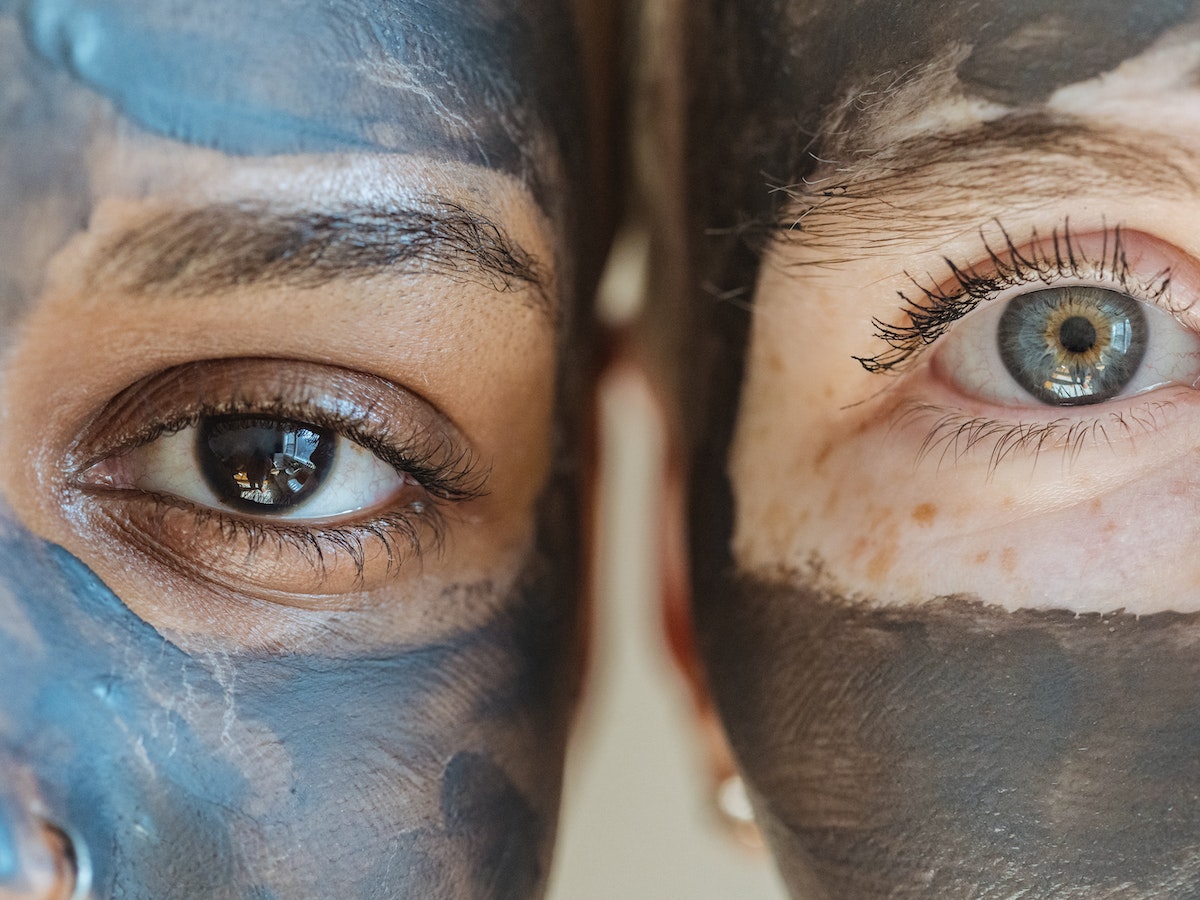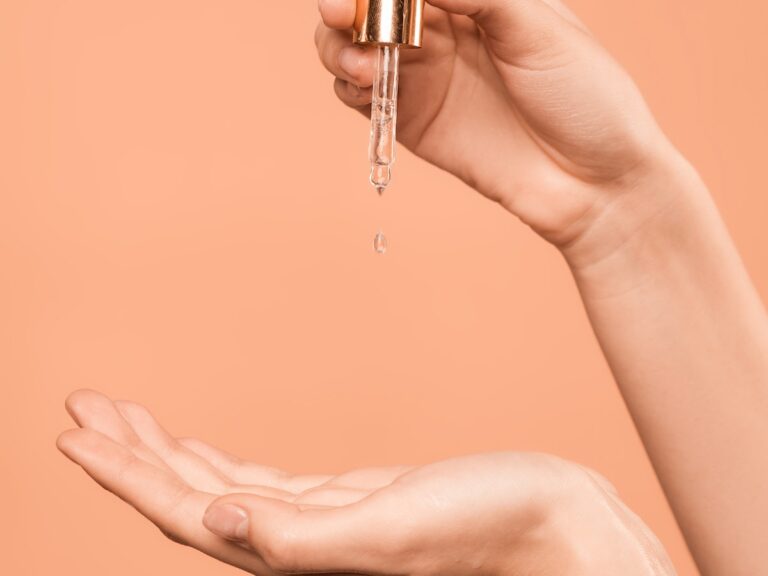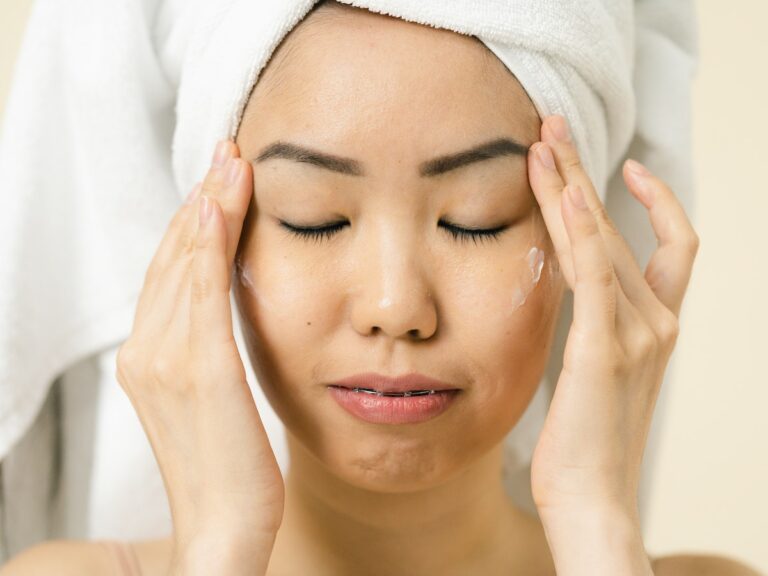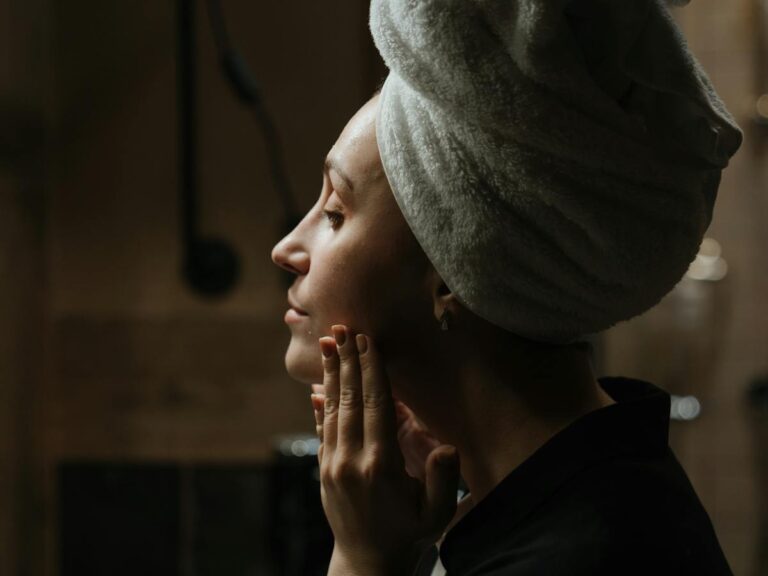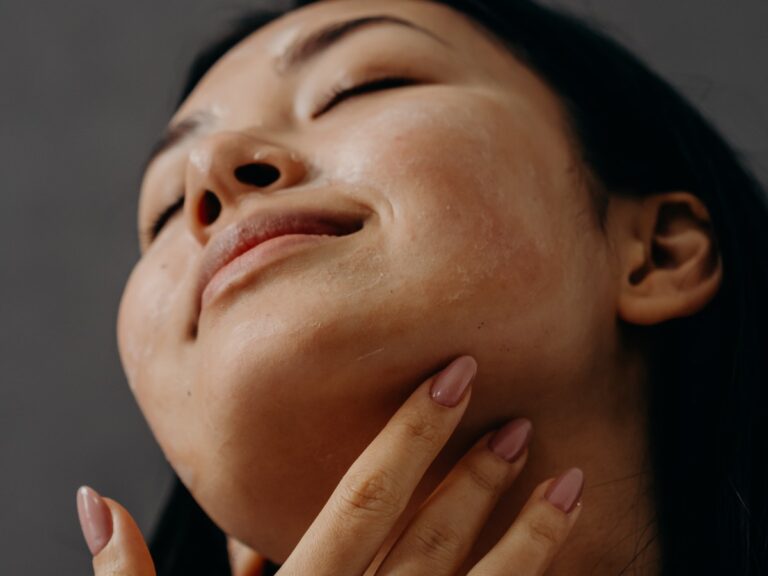Do Anti-Aging Creams Actually Work? Unveiling the Truth Behind Youthful Skin
Are anti-aging creams genuinely effective? We must dive deep into the world of skincare to address this question. A topic which is close to both teenagers and adults. A topic which has led to several discussions and debates over the years. Such is the topic of anti-aging. In a time where youth and vitality are treasured, these products claim to turn back the hands of time and bestow upon us the gift of eternal beauty. But what is the actual background to these creams? Let’s explore the truth behind the secrets to achieve a youthful skin.
Table of Contents
The Hype and the Skepticism
In a world inundated with advertisements showcasing flawless complexions attributed to miracle creams, skepticism arises naturally. It is critical to approach these claims with a critical mind. While the promise of diminished wrinkles and firmer skin is enticing, separating fact from fiction requires a closer look at the ingredients and scientific studies backing these products.
Understanding Anti-Aging Creams
To maintain a youthful and a fresh looking skin, the skincare industry offers a wide range of options to the consumers. The anti-aging creams take the centre stage of these options. These creams claim they can address some of the visible signs of aging, i.e. wrinkles, fine lines and loss of firmness. But how do they work their magic and what sets these creams apart?
At the heart of anti-aging creams lies a blend of active ingredients carefully selected to target specific concerns. Hyaluronic acid, a hydration powerhouse, replenishes moisture and plumps the skin, while retinoids, derived from vitamin A, stimulate cell turnover, promoting a smoother texture. Antioxidants like vitamin C combat free radicals, those pesky molecules that accelerate aging.
Understanding Hyaluronic Acid and Retinoids in Anti-Aging Creams
Hyaluronic acid and retinoids are two key ingredients which take the spotlight in maintaining youthful and glowing skin.
They commonly found these two powerhouse ingredients in anti-aging creams. Both of them have unique properties which help in combating signs of anti-aging.
Hyaluronic Acid: The Hydration Marvel
With age, our skin’s ability to retain moisture reduces significantly. This leads to the development of fine lines and wrinkles. Our skin naturally produces hyaluronic acid, also called HA. Hyaluronic acid is well known for its capacity to retain moisture, which gives the skin hydration and suppleness. Here’s where hyaluronic acid steps in:
1. Intense Hydration: HA has an incredible capacity to hold up to 1000 times its weight in water. When applied topically, it forms a moisture-retaining barrier on the skin’s surface, plumping and smoothing out fine lines.
2. Enhanced Skin Texture: By promoting optimal hydration, hyaluronic acid can improve the overall texture of the skin, making it appear more youthful and radiant.
3. Reduced Wrinkles: Adequate hydration helps diminish the appearance of wrinkles and fine lines, creating a smoother and more youthful complexion.
Retinoids: The Cell Turnover Boosters
Retinoids are among the most well-known and extensively researched skincare ingredients. It is derived from vitamin A. Retinoids are well-known for their capacity to promote collagen formation and speedy cellular growth, both of which are necessary for maintaining youthful skin. Here’s how retinoids work:
1. Cellular Renewal: Retinoids accelerate the shedding of old, dead skin cells and promote the growth of new, healthy cells. This results in smoother and more even-textured skin.
2. Collagen Production: Collagen, the protein responsible for skin’s elasticity and firmness, naturally declines with age. Retinoids stimulate collagen production, leading to improved skin tone and reduced appearance of wrinkles.
3. Improved Skin Tone: Retinoids can help fade hyperpigmentation, sun spots, and other signs of UV damage, leading to a more even and youthful complexion.
4. Prevention: Starting retinoid use early can have preventive benefits, as they help maintain skin’s health and delay the onset of aging signs.
Role in Anti-Aging Creams:
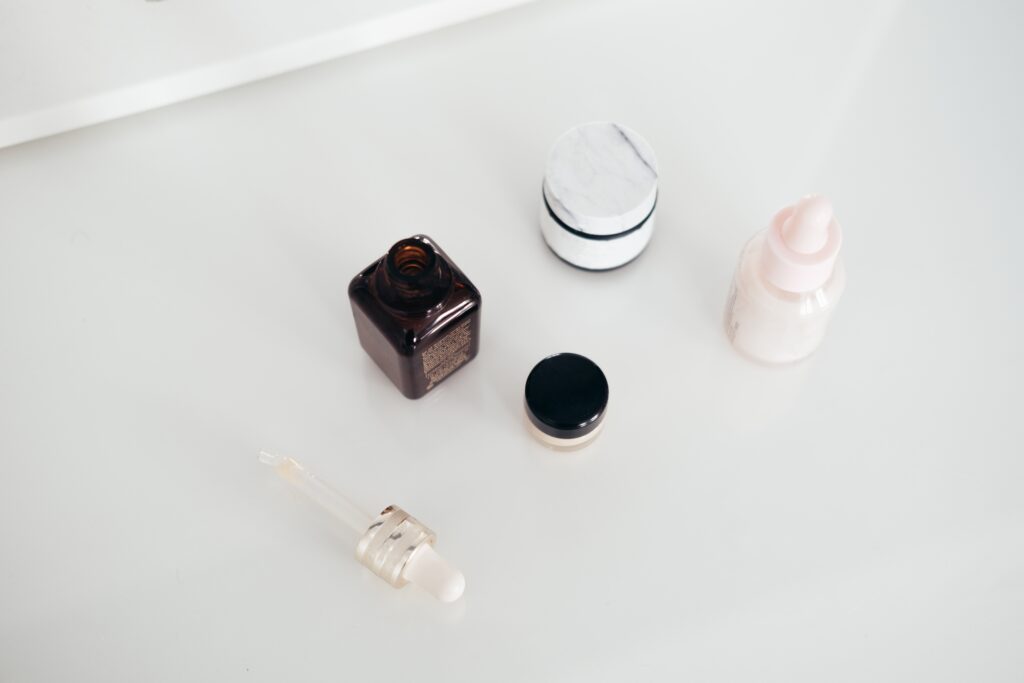
Both hyaluronic acid and retinoids address different aspects of skin aging. While hyaluronic acid ensures optimal hydration, creating a plumping effect which reduces wrinkles. Retinoids, on the other hand, offer long-term benefits by accelerating cellular growth, collagen formation and improved skin texture.
By combining both these ingredients in anti-aging creams offers a holistic approach to combating the visible signs of aging. While hyaluronic acid provides immediate hydration and smoothness, retinoids diligently work to improve the skin health and appearance. It is advised to start with a lesser concentration of these components and then gradually increase its use to prevent any discomfort. Hyaluronic acid and retinoids work together to promote a more young and vibrant complexion over time with regular use and persistence.
Pro Tip: Harsh cleansers can strip your skin of essential oils. Opt for a gentle, pH-balanced cleanser.
When to Use Anti-Wrinkle Creams
When to use these creams isn’t solely determined by age; it’s about prevention. Early use can delay the onset of aging signs, while those in their 30s and beyond can still benefit from their effects. Dispelling the myth that using anti-wrinkle creams leads to dependency, proper use and a consistent skincare routine can indeed contribute to healthier, more youthful skin.
Remember that an effective skincare routine involves anti-aging skincare products. It’s important to keep a nutritious diet, stay hydrated, exercise, and apply sunscreen in order to maintain a youthful skin. By learning the science behind these creams, we can take control of our own choices and start on a journey towards graceful aging.
Debunking the Myth: Can Wrinkle Creams Cause Wrinkles?
In the world of skincare, there is a persistent belief that using wrinkle creams might paradoxically result in additional wrinkles. Let’s put this misconception to rest.
When used properly, wrinkle creams are designed to prevent the effects of aging rather than accelerating them. The myth may have started from occasional reports of skin dryness or irritation when people used products that weren’t meant for their skin types.
It’s extremely important to understand that high-quality anti-aging creams contain ingredients, such as retinoids and hyaluronic acid, and their effectiveness in improving skin texture and reducing wrinkles is supported by research.
In reality, using appropriate wrinkle creams, alongside a proper skincare routine and sun protection, can help prevent and reduce the appearance of wrinkles. The key is selecting products suitable for your skin, following recommended usage guidelines, and being consistent in your skincare regimen. So, rest assured, the right wrinkle cream won’t cause wrinkles; it’ll help you defy them.
Preventive Measures and Treatments
Although ageing is a natural process that affects all of us, there are proactive measures we can take to lessen its obvious impact on our skin. As the years pass, maintaining youthful, bright skin depends heavily on preventative measures and treatments.
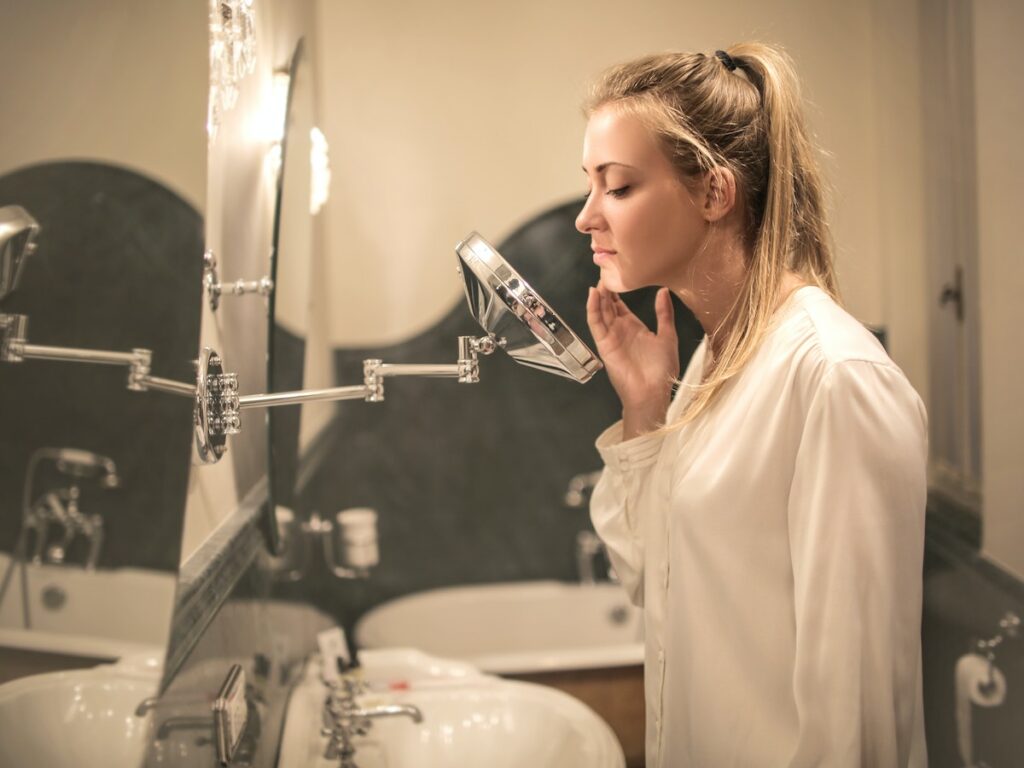
- Sun Protection: Shielding your skin from the sun’s harmful UV rays is one of the most effective ways to prevent premature aging. Regularly applying a broad-spectrum sunscreen with at least SPF 30 helps prevent sunspots, wrinkles, and loss of skin elasticity.
- Hydration: Keeping your skin hydrated is key to maintaining its youthful appearance. Drinking plenty of water and using moisturizers with ingredients like hyaluronic acid helps retain moisture and plumpness, reducing the appearance of fine lines.
- Healthy Diet: A balanced diet rich in antioxidants, vitamins, and minerals supports overall skin health. Nutrients in foods like berries, leafy greens, and nuts fight free radicals and encourage the formation of collagen.
- Smoking: Smoking damages collagen and reduces blood flow, which has the effect of accelerating skin aging. Not only can quitting smoking help your overall health, but it also makes your skin look younger.
- Proper Skincare: Setting up a regular skincare routine is essential. Use gentle cleansers, toners, and moisturizers made specifically for your skin type to maintain a healthy complexion. Retinoids, vitamin C, and hyaluronic acid are ingredients that improves skin’s resilience to fight aging.
- Regular Exercise: Exercise improves blood circulation, which nourishes the skin and promotes a healthy complexion. It also helps manage stress, a factor that can contribute to premature aging.
- Quality Sleep: Getting enough restorative sleep allows the skin to repair and regenerate. A consistent sleep schedule not only supports skin health and also helps in prevent dark circles and dullness.
- Stress Management: Premature aging and skin problems can result from chronic stress. Its effects can be minimized by practicing relaxation techniques, including yoga, deep breathing, and meditation.
- Professional Treatments: Consider dermatological treatments like chemical peels, microdermabrasion, and laser therapy to address specific aging concerns. Consultation with a dermatologist helps determine the best approach for your skin.
- Anti-Aging Creams: Anti-aging creams can produce significant benefits when used regularly. Retinoids, hyaluronic acid, and peptides are among the key ingredients included in products that reduce fine lines, improve skin smoothness, and increase collagen formation.
You’re making an investment in the long-term health and beauty of your skin by implementing these preventive measures and treatments. Adopt a holistic approach of ageing gracefully and keep in mind that a mix of healthy lifestyle decisions and efficient skincare routines will lead to youthful skin.
Pro Tip: Over-exfoliating can damage your skin’s protective barrier. Stick to 2-3 times a week, max.
The Significance of Anti-Aging
Other than for vanity, people are looking for effective anti-aging treatments. Above all, it demonstrates our dedication to keeping a healthy body, which includes keeping our skin young and healthy.
Not only does a healthy complexion appear good, but it also conveys inside health of a person. Information regarding our dietary habits, water consumption, sun exposure, and pollutant exposure is vitally provided by our skin.
Anti-aging, however, has a deeper significance. It is the confidence and belief in oneself. We improve our quality of life and self-esteem when we invest in the health of our skin. Feeling good about ourselves directly results from feeling good in our skin.
Taking preventive actions that benefit our long-term health is a part of the anti-aging journey. A protective barrier made of healthy skin shields our body from dangers outside. We support our entire health and wellbeing by taking care of it.
Anti-aging is, in essence, is more than just a desire for youthful appearance; it’s a sign of our commitment to self-care, good health, and confidence. A reminder that aging is something that needs to be accepted with grace and vigor, it is an investment in the present and the future. Therefore, let’s acknowledge the importance of aging control as a path to a healthier, more attractive, and self-assured future.
Do Anti-Aging Creams Actually Work? The Science Explained
Anti-aging creams are alluring since they claim to slow down the aging process of our skin, but do they actually live up to these promises? To learn the reality, let’s explore the evidence supporting these creams.
- Ingredients Matter: The effectiveness of anti-aging creams depends on their ingredients. A vitamin A derivative called retinol is a premium ingredient. It encourages cell regeneration, increases collagen synthesis, and reduces wrinkles.
- Hyaluronic Acid Hydration: Hyaluronic acid is another noteworthy ingredient. It is a moisture magnet and has a high water retention capability. It smoothes out wrinkles by plumping them up as a result of moisturizing the skin.
- Peptides and Collagen: Peptides, short chains of amino acids, communicate with skin cells, encouraging collagen synthesis. Collagen, responsible for skin’s elasticity, declines with age. Peptides help replenish it.
- Antioxidants and Free Radicals: Anti-aging creams often include antioxidants like vitamin C. These combat free radicals generated by environmental factors, preventing damage that leads to aging signs.
- Clinical Studies: Certain anti-aging cream ingredients are helpful, according to scientific study. Retinol and hyaluronic acid have been shown in studies to improve skin texture, reduce wrinkles, and increase moisture retention.
The capacity of the ingredients to address particular issues gives anti-aging creams their effectiveness. While they won’t work miracles overnight, regular use can eventually lead to noticeable changes. Your ability to age gracefully and confidently is enhanced when you use these creams alongside with a healthy lifestyle and holistic skincare regimen.
Key Ingredients to Look For
Choosing the right anti-aging cream can feel like navigating a maze of products and promises. The secret to finding an effective solution lies in understanding the key ingredients that have been scientifically proven to combat the signs of aging.
1. Retinoids (Vitamin A Derivatives): Retinoids are the superheroes of anti-aging ingredients. They stimulate collagen production, accelerate cellular turnover, and minimize fine lines and wrinkles. Look for variations like retinol, adapalene, or tretinoin for optimal results.
2. Hyaluronic Acid: This moisture magnet is a must-have in any anti-aging cream. Hyaluronic acid hydrates the skin by retaining water, creating a plumping effect that reduces the appearance of wrinkles and fine lines.
3. Peptides: Peptides are amino acid chains that communicate with skin cells, encouraging the production of collagen and elastin. These proteins enhance skin elasticity, leading to firmer and smoother skin.
4. Vitamin C: As a potent antioxidant, vitamin C combats free radicals that contribute to premature aging. It also brightens the complexion and stimulates collagen synthesis, resulting in a more youthful appearance.
5. Niacinamide (Vitamin B3): Niacinamide improves the skin barrier function, minimizing water loss and enhancing moisture retention. It also helps fade hyperpigmentation and promotes an even skin tone.
6. Coenzyme Q10 (CoQ10): CoQ10 is an antioxidant that protects the skin from oxidative stress and supports collagen production. Its presence in anti-aging creams can help maintain skin’s vitality.
7. Alpha Hydroxy Acids (AHAs): AHAs like glycolic and lactic acid exfoliate the top layer of the skin, revealing fresher, more radiant skin underneath. They also encourage collagen production.
8. Beta Hydroxy Acid (Salicylic Acid): Salicylic acid exfoliates within pores, making it effective for unclogging and refining the skin. It also has anti-inflammatory properties.
9. Ceramides: These lipids strengthen the skin barrier, improving moisture retention and preventing water loss. Ceramides contribute to smoother, plumper skin.
10. Sunscreen Ingredients: Preventing further damage is vital. Anti-aging creams with built-in SPF protect the skin from harmful UV rays, preventing premature aging and photoaging.
When browsing for anti-aging creams, remember that these key ingredients are your allies in the fight against time. Look for products that boast a blend of these ingredients and consider your skin type and concerns when making your selection. Armed with this knowledge, you can confidently invest in a cream that works in harmony with your skin’s natural processes to reveal a more youthful and radiant complexion.
Finding the Right Product for You
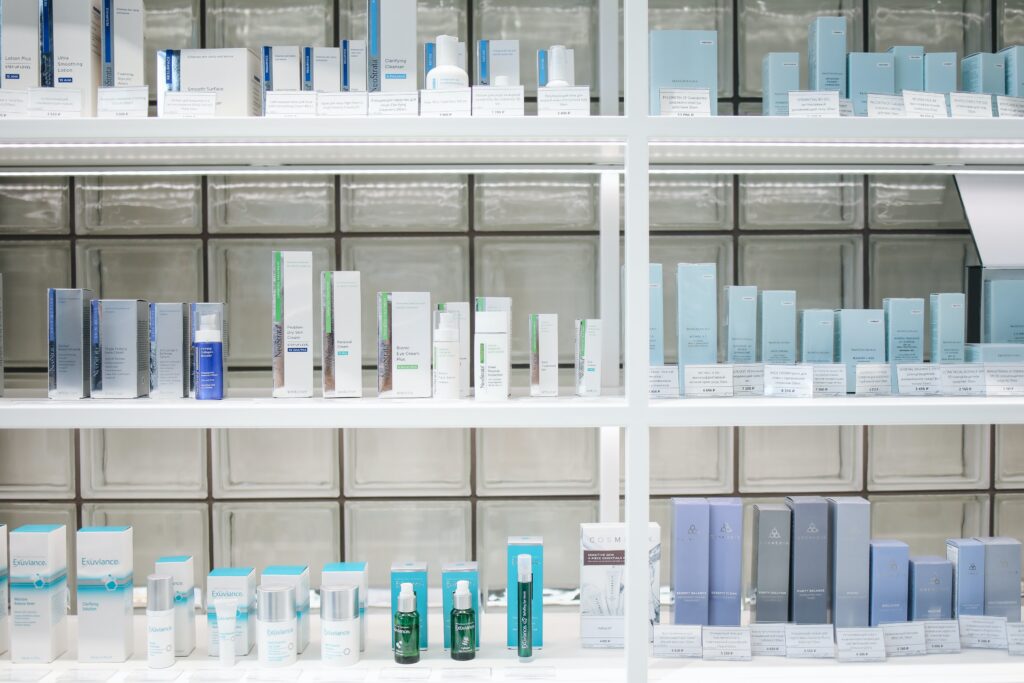
Finding the ideal anti-aging cream for your skin is often a customized process. Skin type, issues, and sensitivities are among the variables. While some trial and error may be required, speaking with a dermatologist or other skincare expert will guide you towards a range of products that are compatible with your skin’s requirements.
We may confidently navigate the complex anti-aging cream market by arming ourselves with knowledge, adopting a holistic approach, and making an educated decision. Keeping in mind that healthy skin is a reflection of self-care, the route to maintaining it demonstrates our dedication to our wellbeing.
Pro Tip: When in doubt, seek professional advice. A dermatologist can help tailor a skincare routine that suits your skin’s unique needs and address any specific concerns.
Conclusion
In the pursuit of youthful and radiant skin, the question “Do anti-aging creams actually work?” is met with a resounding affirmation backed by science, research, and expert opinions. While these creams aren’t magic elixirs that erase years overnight, their carefully curated ingredients and targeted actions can genuinely make a difference in the journey to graceful aging. Our ability to maximize the potential of these products depends on our ability to comprehend the mechanisms behind these creams, debunking myths, and adopting a holistic approach to skincare.
FAQs
Q: Can a 20-year-old use anti-aging creams?
A: Absolutely! The early use of anti-aging creams can be preventive, helping maintain youthful skin and warding off premature aging signs.
Q: Are natural ingredients more effective than synthetic ones?
A: Both natural and synthetic ingredients have their merits. The efficacy depends on the ingredient itself and its compatibility with your skin.
Q: Do expensive creams work better?
A: The effectiveness of a cream isn’t solely tied to its price tag. Look for products with proven ingredients and tailored formulations.
Q: Can men use anti-aging products?
A: Certainly! Skincare knows no gender boundaries. Men can benefit from anti-aging products just as much as women.
Q: Are there any side effects of using anti-aging creams?
A: Mild irritation might occur, especially if not used correctly. Conduct patch tests and introduce products gradually to minimize potential side effects.
